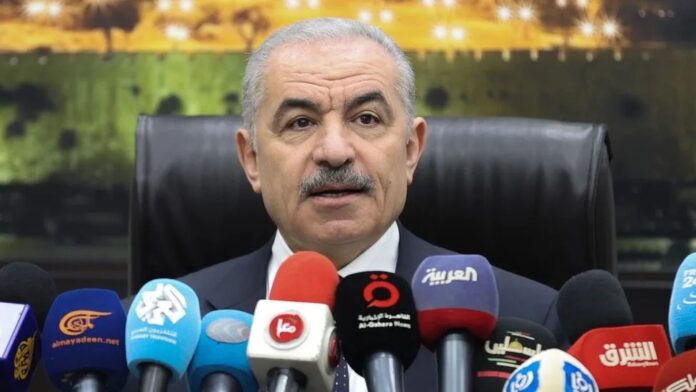Palestinian Authority (PA) Prime Minister Mohammed Shtayyeh tendered his resignation alongside his government, marking a significant development in the ongoing crisis in the Gaza Strip.
Shtayyeh’s decision comes amidst escalating tensions and calls for reform to address the evolving situation in the region.
The resignation announcement, made during a cabinet meeting in Ramallah, underscores the urgent need for new approaches to governance in light of recent events.
Shtayyeh emphasized the necessity for “new governmental and political arrangements” to adapt to the changing reality in Gaza, as well as the imperative for Palestinian unity and sovereignty over the entire Palestinian territory.
President Mahmoud Abbas, accepting Shtayyeh’s resignation, now faces the challenge of navigating the path forward amidst mounting pressure from various stakeholders.
With the United States urging reforms within the PA to facilitate governance in Gaza post-conflict, Abbas’s next steps will be closely watched both domestically and internationally.
While Shtayyeh and his cabinet will continue in a caretaker capacity until a new government is formed, speculation abounds regarding potential successors.
Mohammed Mustafa, a seasoned economist with ties to the international community, emerges as a frontrunner for the premiership, tasked with assembling a technocratic government capable of addressing the multifaceted challenges ahead.
The envisioned government of expert ministers, devoid of factional affiliations, seeks to garner Israeli cooperation in governing Gaza post-war.
However, uncertainties loom over Israel’s willingness to engage with such a proposal, given Prime Minister Benjamin Netanyahu’s recent presentation of a vision for Gaza that sidesteps explicit mention of the PA.
Netanyahu’s plan, focusing on civilian management and public order, highlights the complexities of post-conflict governance and the delicate balance between security concerns and political aspirations.
Despite not outright rejecting PA involvement, Netanyahu’s emphasis on local leadership raises questions about the feasibility of external governance in Gaza.
Meanwhile, international actors, including US President Joe Biden and Secretary of State Antony Blinken, have voiced support for reunifying Gaza and the West Bank under a revitalized Palestinian Authority.
However, achieving this goal hinges on addressing longstanding grievances, combating corruption, and fostering inclusivity within Palestinian governance structures.
As the crisis in Gaza persists, the resignation of Prime Minister Shtayyeh marks a pivotal moment in the quest for sustainable solutions in the region. The road ahead remains fraught with challenges, yet opportunities for meaningful dialogue and cooperation abound.
The coming days will test the resolve of Palestinian leadership and the international community in charting a path towards peace and stability in Gaza and beyond.
This article was created using automation technology and was thoroughly edited and fact-checked by one of our editorial staff members

